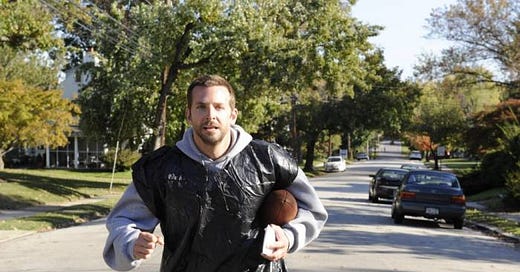Since May has been proclaimed both National Short Story Month and National Mental Health Awareness Month in the United States, I thought I’d share a short story I published years ago that deals with mental health issues.
Addiction, ADHD, anxiety, depression—sometimes it’s the things that go missing in our lives that contribute to these mental health issues. This story illustrates that. There’s no easy fixes, but sometimes understanding the problem can at least alleviate the stigma attached to it. And that alone can help people who are struggling.
The story is actually an excerpt from the novel I'll be publishing in September, both sharing the title “When Things Go Missing.”
Here’s a synopsis of the novel.
One day Fran heads toward the grocery store and keeps on going till she reaches the tip of South America. Meanwhile she leaves behind an empty hole in the lives of her family, an insecure daughter trying to cope with the rigors of graduate school and a lackluster love life; a son strung out on heroin, filled with self-pity and rage; and a husband who plots his wife’s course across the continent with push pins on a map as he pays her credit card bills. How they cope with her mysterious disappearance and the cryptic phone messages and photographs she sends them, as well as rediscover each other and forge new relationships in her absence, creates the heart of this novel.
The novel is written from the alternating viewpoints of the three main characters: the daughter Kay, the son Cal, and the husband. The short story is adapted from Cal’s first two chapters. His story was particularly difficult to write and, perhaps, to read. Many will not find him sympathetic at the beginning. For others who have experience with addiction and ADHD, or love-hate parental relationships, his story may be painful and heartbreaking, and might hit a little too close to home.
But for those who love a good “prodigal son” story, or like rooting for the underdog—cheering for Rocky Balboa when he ran up those stairs, or rooting for Bradley Cooper’s character in the film Silver Linings Playbook—I’m hoping they will cut Cal a little slack.
A lot of things are missing or perceived missing in Cal’s life, as the title indicates. It’s interesting how so much of who we are is shaped by the things missing or absent in our lives—as much as, or perhaps more so, than what’s actually there. The whole premise of the novel is how the mother’s absence shapes the lives of those left behind, as well as how they come to “re-see” her in light of her absence.
But it’s also about how we struggle to make sense of our lives, struggle to piece things together when so much seems missing. Especially since how often these puzzles are pieced together from scraps of memories, misperceptions, misunderstandings, miscommunications, misinformation, as well as our own prejudices and preferences, which often blind us to what actually is. Those missing pieces come to shape how we see each other as much as what’s actually there. In some ways, none of us are really what we are perceived to be by others. We are all the unreliable narrators of our own stories.
The miracle, perhaps, is how we connect at all. How despite all that would seem to conspire to keep us apart, we come together nonetheless.
If this sort of thing interests you, you can read “When Things Go Missing” online in Unchartered Frontier.
Here’s the opening of the story to get you started:
Cal stands on the front stoop of his parent’s home with a cold breeze swirling around him, liking the damp chill seeping into his skin, goosing it up. The sun is almost gone, a faint, dull glow smeared along the horizon. Dusk settles like ashes over the neighborhood rooftops. He watches his sister backing her Volvo down the driveway, heading off to Northridge or Norwalk or wherever the hell she’s living these days. She’d come home looking for a little comfort since mom had gone missing. Fat chance of that. But he’s sorry now that she’s gone, sorry he hadn’t at least said he loved her, or asked her for a loan for fuck’s sake, and missing her even before she disappears around the corner. He takes a long last drag on his cigarette, squeezes the tip, and drops what’s left into his shirt pocket to save for later.
It feels weird walking into his parents’ house without knocking, even though he’d grown up here, been living here since his last stint in county jail, and off and on over the past ten years. He’s acutely conscious that this is not his home and never really had been, not even when he was a kid. He sucks on the fact like a sore tooth, teasing it, testing it with his tongue. It’s like he’d been born homeless. Like from the day he was born they were all just waiting for him to move out again. The thought fills him with a strange sense of satisfaction: Cal didn’t need a home. Didn’t need anything, anyone. Ever.
I hope a few of you will take the time to read this and let me know what you think.





Wow, this sounds very interesting! I love how real the characters are facing day to day issues, especially figuring out family dynamics when a member is out of the picture. Can't wait to see the final product!